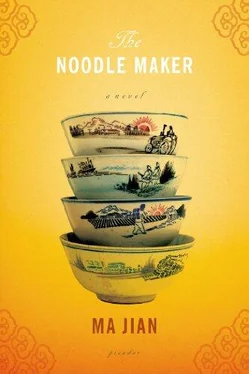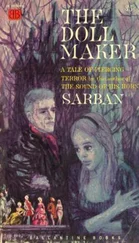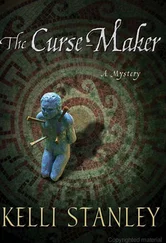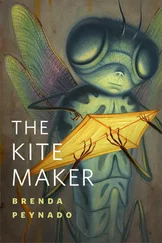As time passed, she grew accustomed to the slimy male fluids and the various ways men moved: stomping down the streets with their heads in the air, thrusting back and forth during intercourse, chomping noisily at their food at mealtimes. She learned about men’s cruelty and weakness, and became familiar with the smell of their feet and dirty plimsolls, the stench of tobacco on their teeth.
‘They invaded every part of me,’ she wrote. ‘They wanted my chastity, but they didn’t respect it. I wanted their love, but they just pulled out their dicks and squirted their sperm over me. They destroyed all my dreams. Where can I hope to find love now? They have polluted all the sources. Just because they have stolen my innocence from me, does that mean I must lay myself bare and expose every part of myself to them? If I don’t put on an act, how will I ever find love? Men are no better than dogs. They believe that when they lift their legs to piss, the ground beneath them becomes their territory. If I don’t conceal my true nature, how can I satisfy their desire for feminine restraint and refinement?’
As she progressed with her suicide plan, she caught a glimpse of her future, and she felt both calm and afraid. She was nervous that someone might guess her state of mind, so before she stepped outside, she always made sure to dress up like a woman who was passionately in love with life. ‘All suffering is man-made,’ she said, trying to console herself ‘The sublime state of confusion is only possible when your heart is numb. Suicide is the only permanent cure for despair.’ She forbade herself from thinking about her birth or her death. She knew that her birth and death were travelling in different directions, but heading for the same goal.
When she decided that suicide was the natural way to finish the play, she tore up the earlier scenes she had been working on and started again from scratch. She hoped that the new one-act play she came up with would bring her life to a glorious and radiant end. She dedicated the new script to the love she had once believed in, hoping that this would soothe her broken heart. She telephoned the Open Door Club, a venue filled with the type of liberal-minded people who had appeared since the launch of the reform policy. She wanted to use this club to stage the final climax of her life.
In the centre of the newly built club was a large basketball court. The space below the spectators’ seats was occupied by ping-pong rooms, rehearsal rooms, shops, the offices of an association for the handicapped, a social club for retired cadres, a local family planning centre, a senior citizens’ dating agency, a wholesale outlet for Victory Biscuits, and a tax-collection point. Walking through the club, one would bump into unemployed youths, company managers, artists, the two midgets who danced with the club’s singer every night, painters on the look-out for beautiful models, and women in search of their prince on a white horse.
A few months before, the club had hosted the first beauty contest to take place in the town since the launch of the Open Door Policy. When the young women glided across the stage, a beautiful scent flowed from their thighs, nipples, stomach, feet, backs and buttocks, and filled the competition hall. The first part of the contest was a quiz on the memorandums issued at the Ninth Party Conference. The eventual winner had spent six months studying the documents, and got every question right. The last test was the swimwear competition. The women waltzed delicately across the stage, as the choir behind them sang: ‘Let us follow the advice of the Party Central Committee, and go to the rivers, lakes and seas to perform our morning exercises …’
Inside the club, people could gain a taste of what it feels like to travel abroad. They would swagger through the corridors, exchanging looks of smug satisfaction. The shops below the spectators’ seats had American cigarettes and bars of soap whose wrappers were printed with pictures of foreign women in their underwear. The soap wasn’t for sale, it was merely displayed to bring in the customers. Young men would enter the shop pretending to want to buy something, just so they could lean over the glass counter and stare at the smooth shoulders of the lady with golden hair, then with palpitating hearts, lower their gaze to her ample breasts and the flesh-coloured bra that covered them. With each new campaign against ‘Bourgeois Liberalisation’, the soap wrapper was assessed by censors from the Information Bureau and Propaganda Bureau, but always managed to pass the test. You could say that the wrapper lay on the boundary between the pornographic and the healthy.
In the club’s video rooms and coffee bars, members swapped Foreign Exchange Certificates and ration coupons. The club became the centre of the town’s black market trade. One could find coupons for peanut oil, as well as the diesel coupons and national treasury bonds that were introduced after the launch of the Open Door Policy. Two tickets for the monthly screening of films marked ‘Internal Viewing Only’ (which only a select group of cadres were allowed to ‘Watch and Criticise’) could be acquired in exchange for a permit to buy goods at the Friendship Store, which was generally reserved for foreign visitors. If one had recently embarked on a new love affair, two of these tickets would guarantee a night of passion. These films had not yet been vetted by the Central Committee, so it is easy to imagine the kind of scenes they contained. In the coffee bar, one could also exchange lithium batteries for Marlboro cigarettes, a bottle of foreign wine for a bicycle, a copy of Lady Chatterley’s Lover for the second volume of the erotic classic, Jin Ping Mei, a hundred treasury bonds for a jar of Nescafe, and top grade rice coupons for an advertisement bearing the picture of a blonde woman in a swimsuit. One could also procure photocopies of the application forms and correspondence addresses of every large university in America, as well as a list of the names and telephone numbers of the staff of Beijing’s American Embassy. These of course had to be paid for in Foreign Exchange Certificates, as indeed did anything with remotely ‘foreign’ associations. With a wad of FECs and a couple of purchasing permits, you could wander into the Friendship Store without being stopped by the guards. If you were lucky, you might even be able to rub shoulders with a foreigner inside the store, and catch a whiff of their intoxicating bourgeois fragrance.
Su Yun knew that the painter often visited the Open Door Club to watch the various talent and beauty contests that were held inside.
She made an appointment with the club’s manager and turned up at his office at the time agreed. He was the son of a commanding officer of the old Red Army. Although he was in his forties and had a small, monkey-like chin, the continuously changing lines on his brow suggested he was at the forefront of the reform process. During the Cultural Revolution, he was sent to prison because his father had been a lackey of the treacherous marshal, Peng Dehuai. His wrists were left crippled by the handcuffs, and since his aunt was living abroad at the time, he was accused of being an undercover agent, and subjected to further torture. However, after the Open Door Policy was launched, foreign connections and pockets stuffed with FECs gave him the freedom to saunter in and out of the Friendship Store whenever he pleased. After the posthumous rehabilitation of his father, he used the compensation money to set up the club, and threw himself into his new career with enormous enthusiasm.
‘I want to take part in your “Everyone is Happy” show,’ Su Yun told him, lowering herself into her seat. ‘I will perform the most innovative act this town has ever seen.’
Читать дальше












